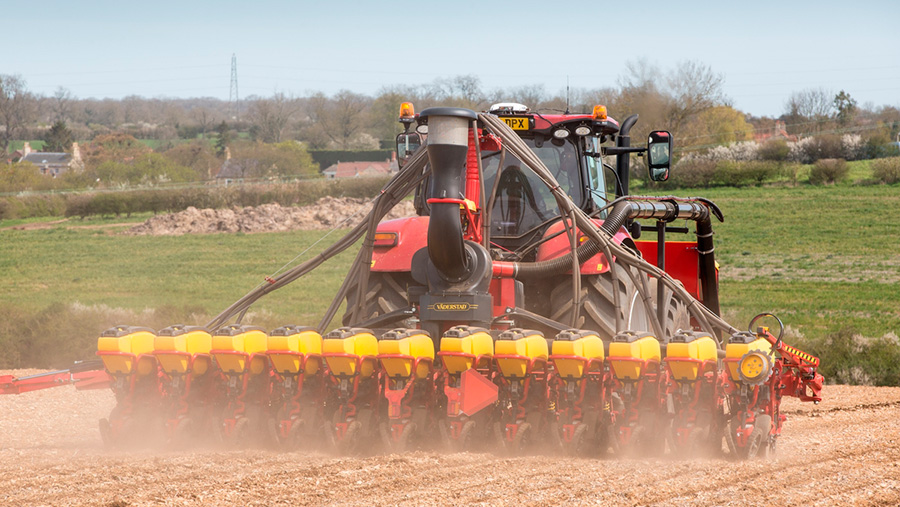Total income from farming sees small real-terms rise in 2016
 © Tim Scrivener
© Tim Scrivener Total income from farming (Tiff) in the UK rose by 1.5% or £59m in real terms to £3.9bn in 2016, Defra figures show.
Tiff represents business profit and although it rose, this was because of lower input costs rather than better farmgate prices.
The value of output overall fell by 3.4% to £23.5bn. This was mainly driven by falls in both volume and value for cereals and milk.
“We would have expected the total income figures to be a little bit higher,” said Richard King, partner and head of business research at the Andersons Centre.
See also: Five changes to employment law farmers need to know about
Overall cereal production was down, with the exception of oats, driven by a return to more typical yields following the record yields of 2015.
Despite market prices strengthening in the latter part of the year, cereal prices for the year as a whole were lower and both milk production and prices were lower in 2016.
The importance of currency is demonstrated by the effect of the weaker pound in 2016. This led to an increase of 18% in the value of payments under the Basic Payment Scheme, with payments set in euros and converted to pounds using the exchange rate set by the European Central Bank every September. In 2016 this was at €1=85.2p compared with €1=73.1p in 2015.
“Although the overall profitability has recovered to a certain degree, we are still far from seeing levels that will sustain a long-term and profitable farming industry,” said NFU president Meurig Raymond.
Gross domestic product (GDP) from farming fell by £165m to £8.5bn, which in real terms is a 1.9% decrease. Mr Raymond called for the next government to put in place an agricultural domestic policy that makes farming a more stable and profitable industry.
Input costs fall
Farmers spent £380m less on inputs at £15bn, and in general most input costs fell because animal feed and fertiliser prices fell.
The cost of fertiliser fell by £250m to £1.1bn, while animal feed costs fell by £157m to £4.5bn, due to a combination of reduced volumes and feed price.
Energy costs fell by £49m to £1.1bn, mainly because lower global oil prices at the beginning of the year kept overall annual average prices down.
“Hopefully, if the currency market and everything else stays as it is for 2017, we expect about a 10% increase for total incomes from farming this year,” said Mr King.
Tiff represents business profits and returns for work done by owners and other unpaid (usually family) workers.
It excludes changes in the values of assets, including stocks, due to price changes, but includes non-agricultural activities such as further processing or tourist activities where these cannot be separated from the agricultural business.
